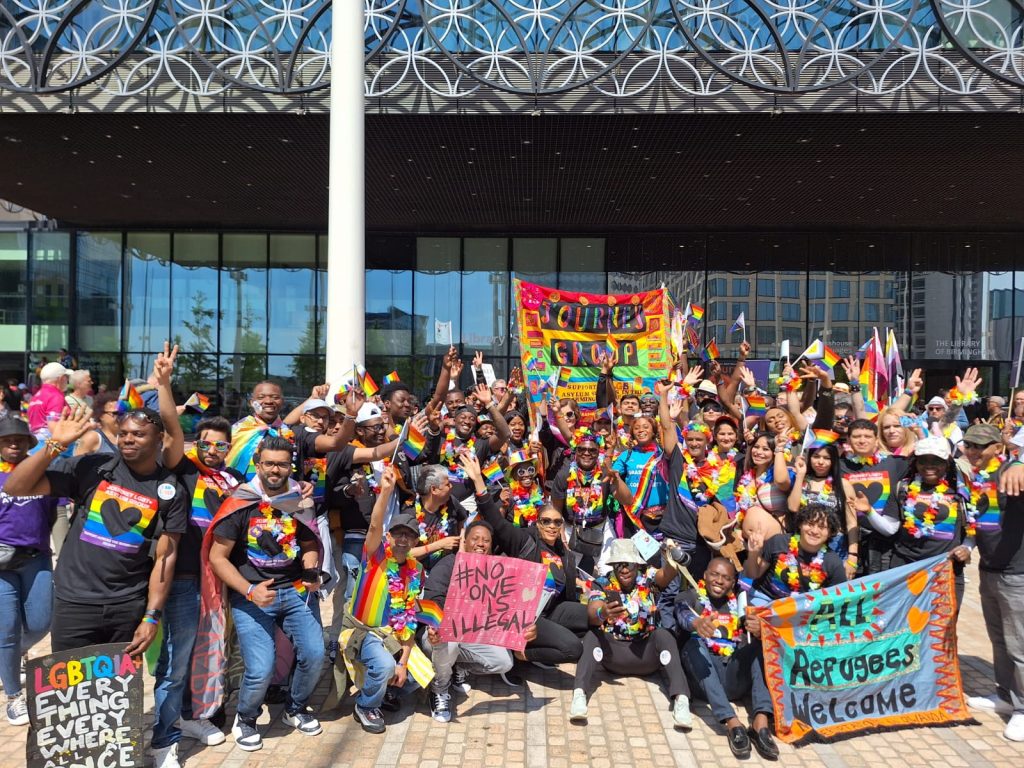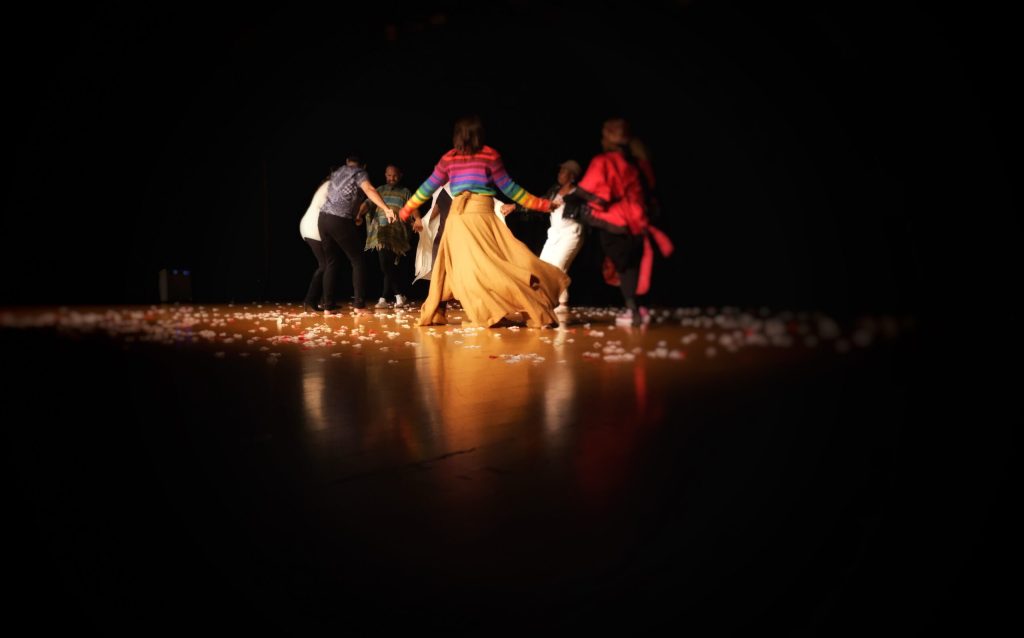
The Right to Remain team have been busy gearing up to become a lead cheerleader for radical solidarity. Over the past few months, we have been connecting with small grassroots groups, especially those who use our resources, attend our events and share their campaigns with us. To us, these grassroots groups embody radical solidarity – they give us hope and faith in our communities. So, this series – In Search of radical solidarity– aims to raise the profile of these groups, so we can learn the true meaning of radical solidarity from each other.
The Journey LGBT+ Asylum Group supports LGBTQ+ refugees and people seeking asylum in Birmingham and the West Midlands. They provide a safe space and community to asylum seekers from a variety of countries such as Iran, El Salvador and Namibia, who identify as LGBTQ+. Their website is testimonials from members, who say: “The group allows me to be free to be myself” and “This is more than a family”. We spoke to Sheila Rushforth, one of the organisers of the group, about their work and how they create a safe space for their members:
“Our approach is that we walk with asylum seekers. There is a lot of building people’s confidence in who they are, building friendships and networks with each other. People in the group help each other – one of the things people say when they first join is ‘I thought I was the only one, I didn’t think there were other people like me’.Then, they walk into a room full of people who are like them – it’s really empowering.”
“People often haven’t talked about their sexuality elsewhere so we sometimes have this conversation. But it’s also about talking about the weather, or a football match, or what music they’re into – it’s just about people feeling safe and feeling confident about who they are.”
Journey provides a combination of emotional and educational support for their members. Sheila says: “We have educational meetings on the asylum and immigration system and social meetings. We provide a lot of one-to-one support to individuals, especially those who are newly arrived and need someone to talk to. We try to signpost them to more speciality services, to places like Freedom from Torture or the LGBT Centre for counselling. We also encourage people to take up education, like ESOL classes, so they can build their confidence and meet other people.”
Some of the Journeys members took part in the SHOUT Festival, where they celebrated LGBT+ arts and culture through a short performance at the Midlands Art Centre. “We couldn’t believe how many people got up on stage and gave a monologue or sang.” This is just one of the many ways that Journeys empower its members to boost their self-confidence.
There is an emphasis on empowering individuals to take a leadership role in the group. “We’ve got the buddy scheme, which is about empowering members of the group to support each other. For those individuals, it gives them a real sense of responsibility. People who have been supported by the group want to give back and support others. It’s somebody whos not going to judge them and who accepts them for who they are.”
“For individuals in the group, they would never have been visible in the streets of their home countries, but at places like Pride- they can’t believe people are cheering them on. You can just say how joyous they feel and moving it is.”
What does radical solidarity mean for Journey LGBT+ Asylum Group?
“It’s about accepting the limitations of what we can do as a group. We want individuals to be able to go to other organisations for their support. Migrants and people seeking asylum may feel the need to compartmentalise which groups they are a part of, but there is overlap.”
“It’s about raising awareness about the issues that these migrants and people seeking asylum face. We signpost campaigns to our members, that we think they might be interested in participating. We had a member who gave a really powerful speech about not being able to work and being stuck in the system for years, so we directed them to the Lift The Ban campaign. Having people like them speak about the issue is important.”
“You have a right to your voice, once you have spoken out, it can never be taken away from you.”

















Discussion: